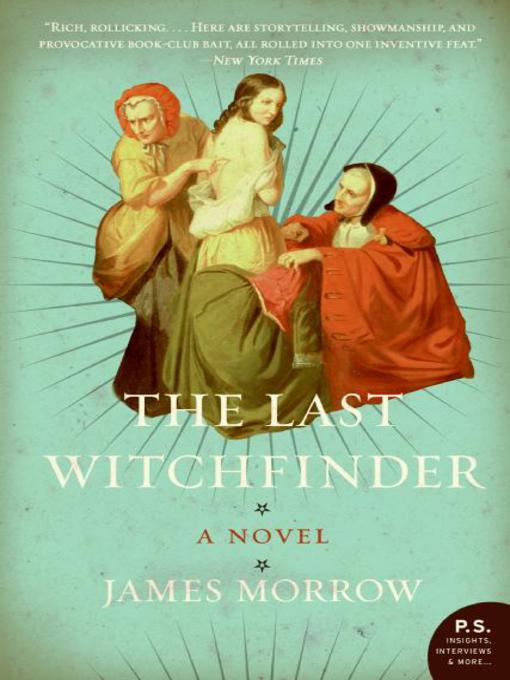The Last Witchfinder is really two books in one, woven together so seamlessly and inventively that alternating chapters begin and end with the same word. An example of Morrow's deft transitions:
An argumentum grande is growing inside me. I have achieved a mental / Pregnancy rarely saved the life of a convicted sorceress during the witch-hunting centuries, but a full womb was normally good for a temporary reprieve.
One tale is that of Jennet Stearne, daughter to a witch-hunter and niece and pupil of the female philosopher Isobel Mowbry, who is unsurprisingly burned at the stake, an act which commits Jennet to her aunt's legacy. Throughout a plot that rivals daytime soap operas for twists and turns, Jennet experiences a kidnapping by Native Americans, the loss of two children (one to smallpox, another to her husband's machinations), a shipwreck, and a fiery relationship with a 19 year-old Benjamin Franklin when she is 47 (the first cougar?). Her brother, Dunstan, marries the infamous Abigail Williams, the foremost accuser of the Salem witch trials, and becomes a witchfinder himself, while Jennet devotes herself to proving, with the help of Sir Isaac Newton, that witches do not exist.
Telling this story is another book; in this world Morrow has created for us, books write each other. The true author of Jennet's tale, it seems, is not Morrow himself, but rather Isaac Newton's "Philosophiae Naturalis Principia Mathematica." This is certainly a rather contrived way to frame what is essentially a historical novel, and I wonder how much Morrow intended to show off his own erudition with this authorial sleight of hand. I give him points for originality, a quality not always conducive to generating readable material. To my surprise and pleasure, however, Morrow's storytelling not only supports his showmanship, but is zested throughout with his gift for cleverly turned prose.
*Thanks again to Sarah Carbone and Dianne Schure for recommending this book to me, and especially to Sarah for lending me her copy.



No comments:
Post a Comment